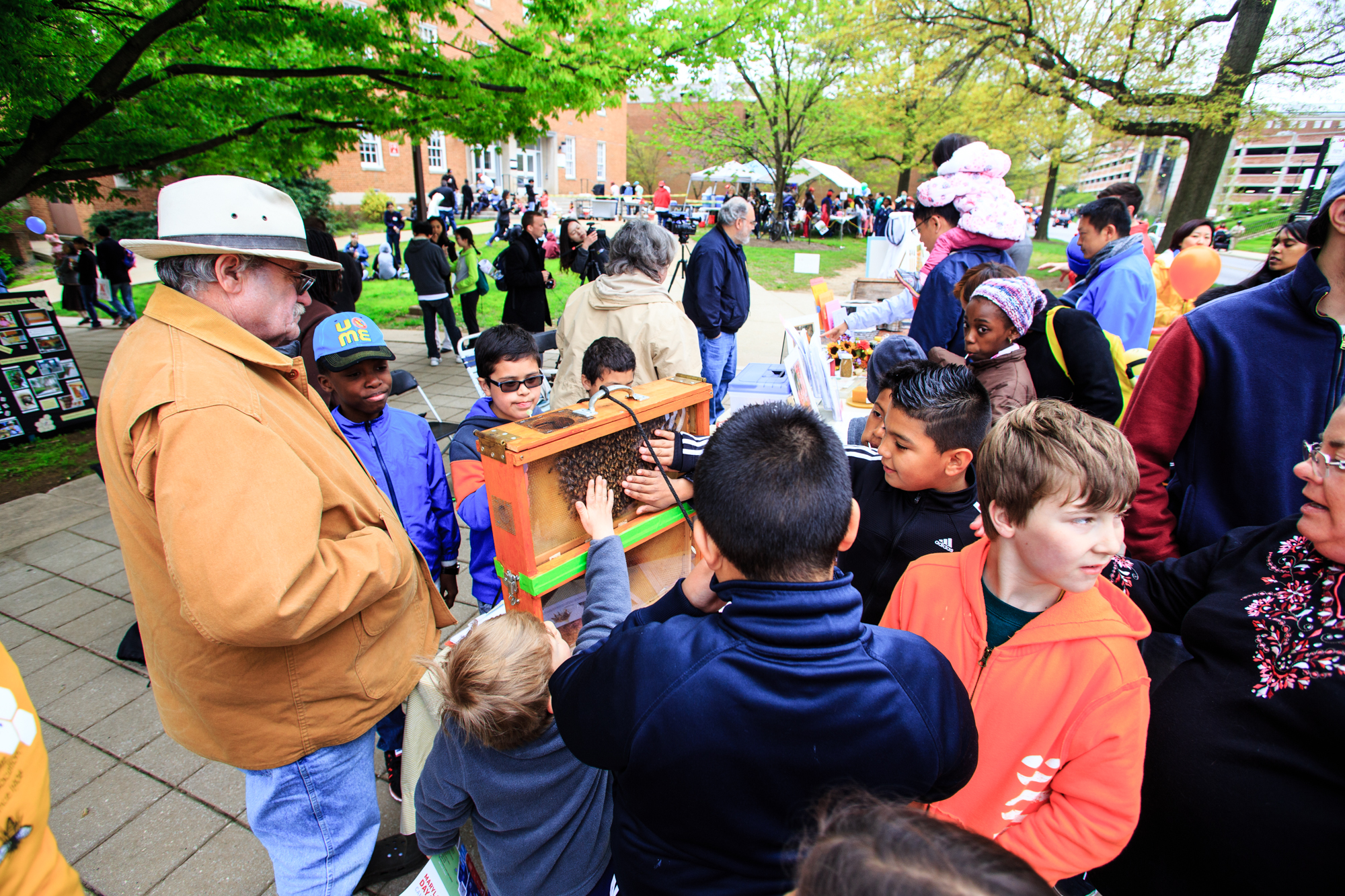Bees can make the University of Maryland campus a healthier place, and teaching students and faculty about these pollinators is an important step in ensuring the species’ well-being, said sophomore computer science major Marcus Fedarko said.
Last week, the Student Government Association passed a resolution to become BEE Protective Ambassadors — students dedicated to outreach and education about pollinator health. Passing this resolution is the university’s first step in the BEE Protective program hosted by environmental nonprofit Beyond Pesticides, said Aubrey Stevenson, a fellow with the organization.
“Once you pledge, that means you are an ambassador, but it also means you have to have a continuous relationship with us in order to earn the right to call yourself BEE Protective,” Stevenson said. “It basically is the term for the liaison.”
Beyond Pesticides provides campus administrators and landscape managers with alternatives to toxic chemicals that might threaten pollinator species, said Jen Ruocco, executive assistant with Beyond Pesticides.
Many people don’t understand the relationship and the effects bees have on our everyday lives, Stevenson said. Without bees and other pollinators, the overall health of the environment would suffer, and “you wouldn’t have a lot of the food that you eat today,” she added.
Fedarko, a member of the student sustainability committee, will be one of this university’s first BEE Ambassadors.
“It’s a cool opportunity,” Fedarko said. “I’m really excited to get the chance to let people on campus know about … all the ways they can help make the campus a healthier place.”
BEE Protective is a project for communities — including universities and towns — which requires participants to complete three tasks: begin an education campaign about pollinator health, create a pollinator-friendly habitat, and work with campus administration to pass a campuswide resolution to protect pollinators and reduce the use of pesticides, Stevenson said.
The SGA is already taking steps to meet BEE Protective requirements. They have plans to plant a pollinator garden with Dining Services — the location is yet to be determined — and coordinate education and outreach about the harmful effects of pesticides with other organizations such as MaryPIRG, said Emily Starobin, a sophomore environmental science and policy and Spanish major.
“Education is key for this [program],” said Starobin, who is also a member of the Student Sustainability Committee. “People don’t even know why bees are important and why people should care, so I’m excited for getting students involved.”
Last fall, Beyond Pesticides contacted Errin Saunders, another Student Sustainability Committee member, about becoming a part of the BEE Protective program after the organization heard about the SGA passing a resolution last semester requesting information about on-campus pesticide use, Saunders said.
“They’ve been so proactive and helpful,” said Saunders, a junior environmental science and policy major. “The sense of the program is that they provide us with materials and information, whatever support we need in order to encourage pollinator protective measures on campus.”
The final step the SGA would have to complete for the campus to be BEE Protective is to ask the administration to sign a community resolution to stop using neonicotinoid pesticides, which are harmful to pollinators, Ruocco said.
Once the steps have been completed, the SGA and other organizations involved will have a continuous relationship with Beyond Pesticides in order to become BEE Protective certified.
“That’s the whole point of working with college students,” Ruocco said. “We find that they’re full of surprises and are really great at brainstorming and thinking outside of the box.”



